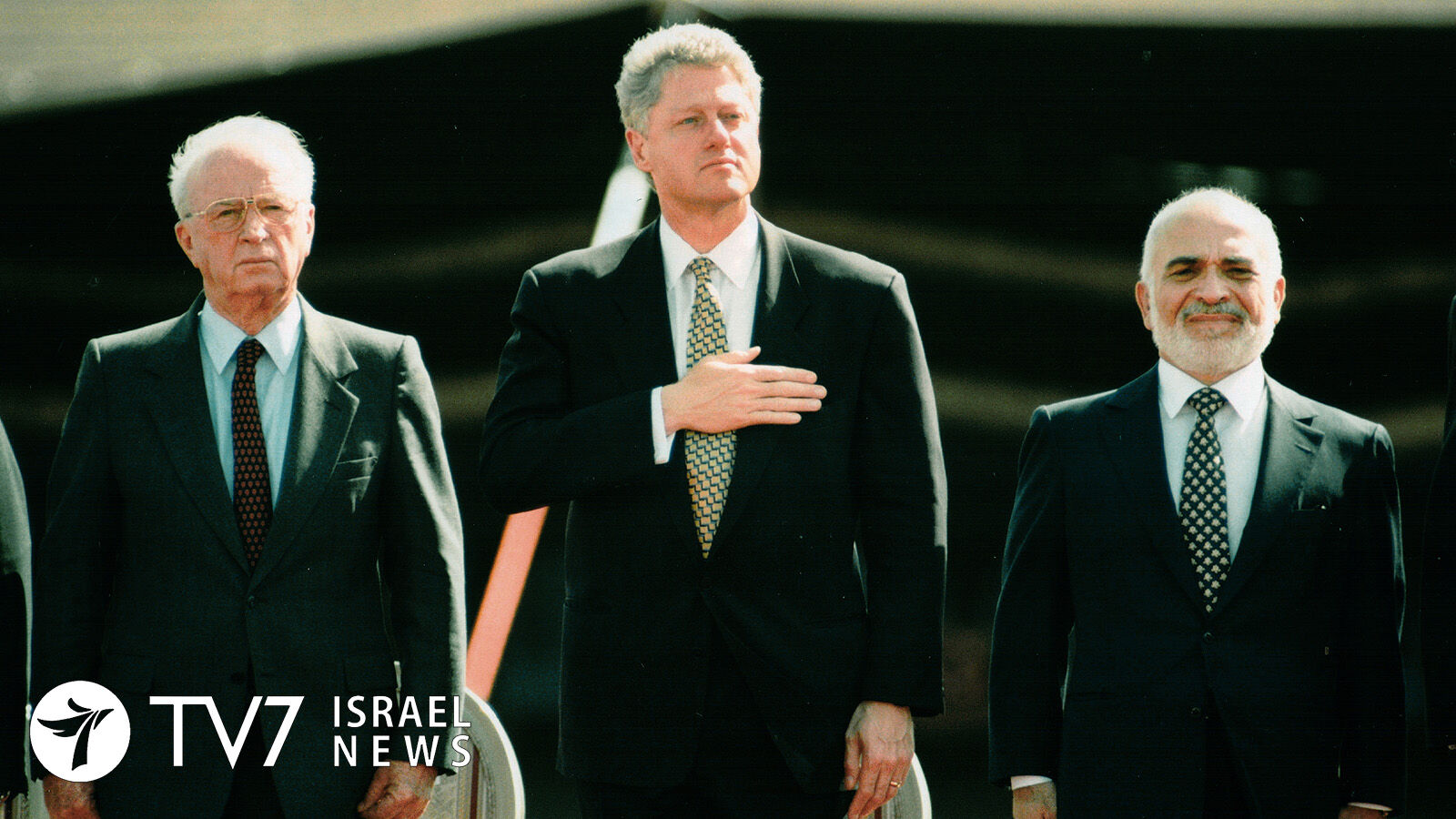Amman’s ties have recently warmed with Jerusalem, most notably with the doubling of water supplies from Israel.
By Erin Viner
Israeli President Isaac Herzog sent a congratulatory letter to King Abdullah II of Jordan to commemorate the historic peace accord between the two nations.
“Anyone present at the ceremony at the southern border crossing of Arabah on October 26th, 1994 will never forget the fine day on which your father, King Hussein, and Prime Minister Yitzhak Rabin demonstrated the true meaning of leadership by taking responsibility for their nations’ fate,” wrote President Herzog, emphasizing that the signing “represented the triumph of vision over extremism and cynicism.”
Then-United States President Bill Clinton helped broker the treaty that ended the formal state of war that had existed between the two countries since Israel’s founding in 1948.
“The supreme strategic value of peace should be clear to all” with the passage of time, noted the Israeli President, going on to call for the “deepening and expanding” of bilateral ties “across all levels of government and civil society” in “all fields of cooperation” to “safeguard this indispensable asset of peace” for the benefit of both nations and the entire region.
“I assure you, Your Majesty, of the State of Israel’s complete support for this lasting peace, and I look forward to continuing to deepen our friendship for many years to come,” he vowed.
Lauding secret talks in September at the Jordanian monarch’s palace revealed days later, Herzog wrote, “Our important meeting several weeks ago, which you so graciously hosted, renewed my faith in the crucial partnership between our nations and filled me with optimism for the future.”
Israeli Prime Minister Naftali Bennett also reportedly met secretly with Abdullah in Amman last July. Even though the Prime Minister’s Office refused to comment, the leader of the Hashemite Kingdom has twice made apparent references to the meeting. The occasion would mark the first summit between the top leaders of the neighboring states in over 5 years.
Since taking office last June, the Bennett administration has worked to strengthen ties with Jordan, which cooled under the preceding government.
In accordance with an agreement the Israeli leader made to Abdullah, following up on negotiations Israeli Foreign Minister and Alternate Prime Minister Yair Lapid held with Jordanian Deputy Premier and Foreign Minister Ayman Safadi, Israel agreed earlier this month to double its supply of fresh water to Jordan.
Jerusalem will sell an additional 50 million cubic meters of water to Amman this year, as part of the “reset” in ties. The deal, said Israeli Minister of National Infrastructure, Energy and Water Resources Karine Elharrar at th e signing ceremony in the Jordanian capital, demonstrates how much emphasis the Jewish State places on “good neighborly relations.”
The spokesperson for Minister Elharrar said that the additional water provided to the Hashemite Kingdom will be pumped from the Sea of Galilee.
